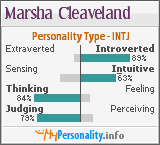Words can be structured as a block wall: straight, mortared, precise. Or they can be tumbled together like a quickly piled wall of fieldstones. Or words can entice and delight, beckoning us inward, as a wall around a resort, rendered beautiful -- but whose purpose is to keep people out. Words give our thought boundaries, but they create architecture in the process, defining inside from outside, surface from depth, distinguishing atoms from galaxies in the mind.
Bricks can build a palace, a prison, or a house of worship. Is it strange that words may offer assumptions, lies or truth? Facts may be concealed by factoids; wrongs are justified by semantics, like filthy, smelly laundry hung skillfully on the clothesline.
Language gives us the power to manipulate thought. Stories, essays, articles lift our thoughts to ecstasy or drag our minds to the sewer. Words in a book of fiction generate such powerful images in the mind that the movie version never lives up to our own inner vision of the story.
Words, having potential, brought together on purpose, carefully chosen and aligned, create worlds in the minds of readers, just as our world was spoken into existence from the mind of God.
Bricks can build a palace, a prison, or a house of worship. Is it strange that words may offer assumptions, lies or truth? Facts may be concealed by factoids; wrongs are justified by semantics, like filthy, smelly laundry hung skillfully on the clothesline.
Language gives us the power to manipulate thought. Stories, essays, articles lift our thoughts to ecstasy or drag our minds to the sewer. Words in a book of fiction generate such powerful images in the mind that the movie version never lives up to our own inner vision of the story.
Words, having potential, brought together on purpose, carefully chosen and aligned, create worlds in the minds of readers, just as our world was spoken into existence from the mind of God.

